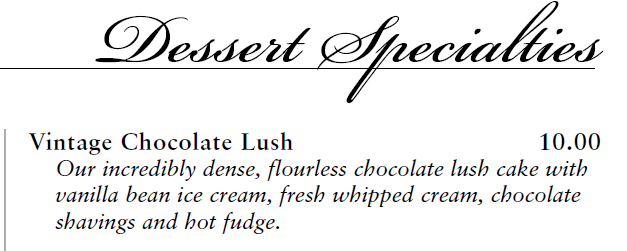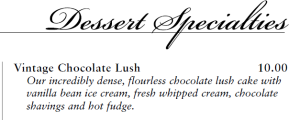On my drives to and from work and school, I tend to scan Tampa’s radio stations, most of which play the kinds of songs I only started to like when — last year, at my cousin Frankie’s wedding — I realized how fun it is to dance. And almost a year later, I have to get the following of my chest: If I always tell my friends and family not to listen to the lyrics when they’re in my presence while I’m listening to music (and I do), I probably should find some new music. Just sayin’.
Anyway, as I’ve come to this conclusion over recent weeks, I realized how little I actually listen to the lyrics when I’m scanning for songs fun for dancing and/or driving. So, I started paying attention. Here is some of what I found:
1. “Girl, please excuse me if I’m coming too strong / But tonight is the night we can really let go / My girlfriend’s out of town and I’m all alone / your boyfriend’s on vacation and he doesn’t have to know.”
(“I Like It,” by Enrique Iglesias feat. Pitbull)
2. “He ain’t even gotta try to put the mack on / He just gotta give me that look / When he give me that look / Then the panties comin’ off.” (Superbass by Nicki Minaj)
3. Male voice: “Tell me what’s next, alien sex / I’ma disrobe you, then I’ma probe you / See I abducted you / so I tell ya what to do / I tell ya what to do, what to do, what to do.” Female voice: “Kiss me, ki-ki-kiss me / Infect me with your love and fill me with your poison / Take me, ta-ta-take me / Wanna be a victim / Ready for abduction.” (E.T. by Katy Perry, feat. Kanye West)
Know what those are? Actual song lyrics from songs that are actually popular on radio stations to which actual children listen. I don’t know what bothers me more: the songs, or the fact that hardly anybody ever bats an eye about them, like the anonymous commenter who responded last time I blogged about bad music:
“I think u guys are making this more than it has to be. It’s a song with a good dance beat!!!!N no disrespect, but if it is offensive or you don’t care for it just switch to another station. Stop takin things so serious!!! If I took things so serious I would never leave my house, watch television, or listen to music.”
I don’t disagree entirely. Take Enrique’s “I Like It.” It is, in fact, a song with a good dance beat. Just a song. But the anonymous commenter doesn’t realize his or her point proves mine: What has music become when it’s something we’d feel obligated to shun if we analyzed it? What have we become when we know that and choose not to analyze it anyway?
Well, I’ve analyzed. And one fun song with bad words — like “I Like It” — isn’t a very big deal. But it isn’t one song. It is most songs, and they send messages that call relationships dispensable, sex trivial and rape glamorous (Though these are just the aforementioned three. But if you don’t think there are more, turn on your radio.). And when most songs send messages like that, messages like that are normal. It’s just music. Just a song.
But is it?
This reminds me of the time a friend of mine expressed concern when I told her why I choose not to consume caffeine. Why don’t I drink coffee? Well, my body’s response to it is fun, but only until my friends start questioning my sobriety. And when the hyperactivity turns into anxiety, and my resting heart rate reaches 150, and my colleagues want to take me to the hospital (true story), the caffeine becomes completely not worth it.
“Um, that’s not normal,” my friend said. “Most people don’t have that reaction.”
True. But most people are desensitized to it. Immersed in it, if you will. It’s like horror movies. Some of us jump or scream at what we see on screen, and others sit silently with straight faces. How we react depends on how desensitized we are to it, or how immersed in it we’ve been. The more immersed we are, the less it bothers us. And maybe, in our culture, it isn’t normal to strike other people as drunk after you drink coffee. But look at what is normal:
Infidelity.
Sexually transmitted infections.
Sexual violence.
None of us like those things. We should be bothered by those things. But when our songs are about dispensable relationships, casual sex and encounters that sound a lot like rape, our songs are about those things.
Are they still just songs?
Or are they songs we hear so much they’re normal? Songs to which we don’t even react, we’re so desensitized. Songs that teach us to be less and less bothered by things that should never cease to bother us.





